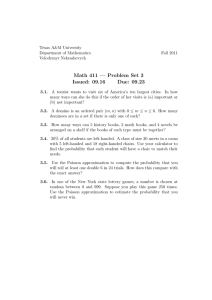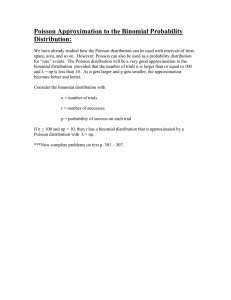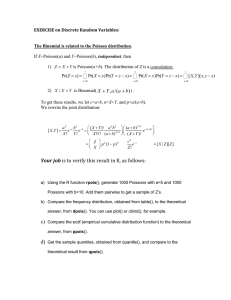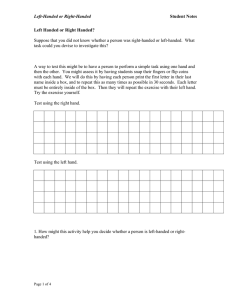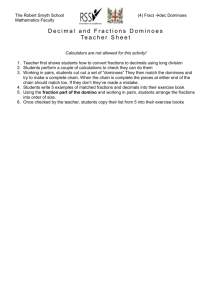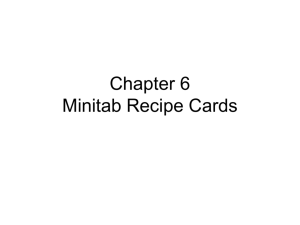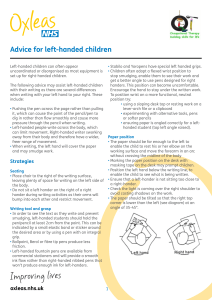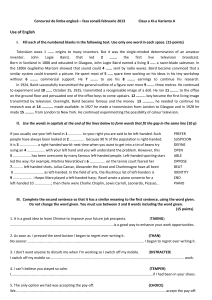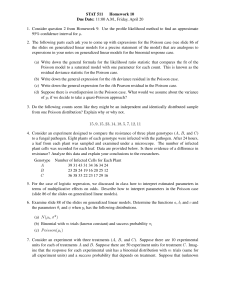3.1. If you take order into account, you will have... you do not take order into account, you have to...
advertisement
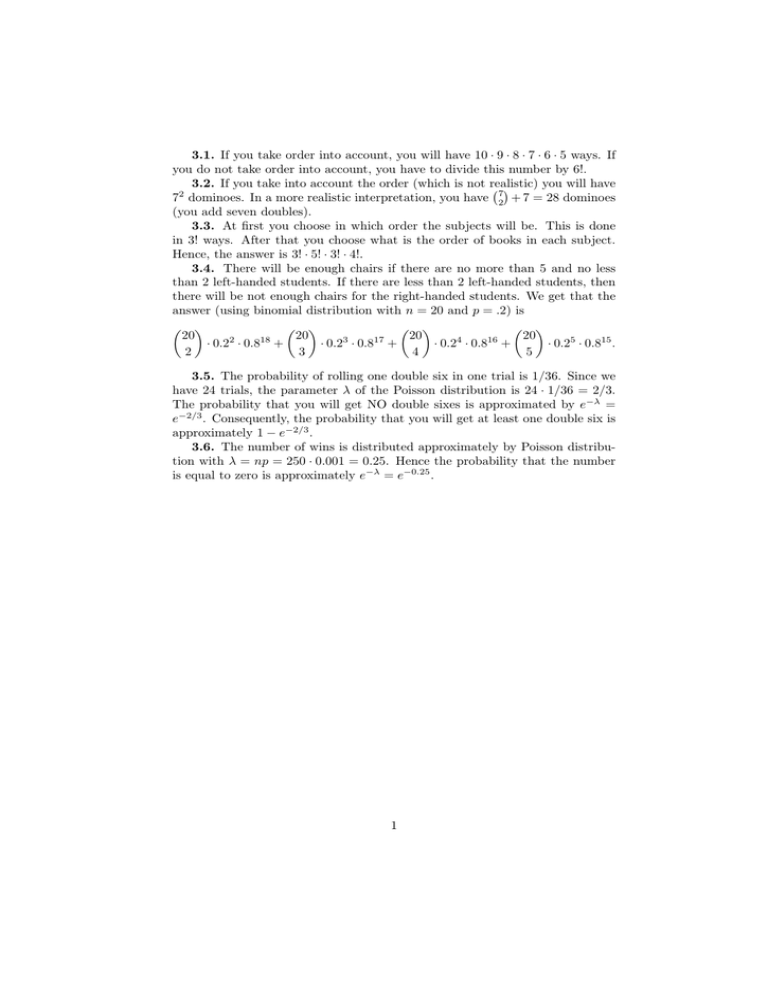
3.1. If you take order into account, you will have 10 · 9 · 8 · 7 · 6 · 5 ways. If you do not take order into account, you have to divide this number by 6!. 3.2. If you take into account the order (which is not realistic) you will have 72 dominoes. In a more realistic interpretation, you have 72 + 7 = 28 dominoes (you add seven doubles). 3.3. At first you choose in which order the subjects will be. This is done in 3! ways. After that you choose what is the order of books in each subject. Hence, the answer is 3! · 5! · 3! · 4!. 3.4. There will be enough chairs if there are no more than 5 and no less than 2 left-handed students. If there are less than 2 left-handed students, then there will be not enough chairs for the right-handed students. We get that the answer (using binomial distribution with n = 20 and p = .2) is 20 20 20 20 · 0.22 · 0.818 + · 0.23 · 0.817 + · 0.24 · 0.816 + · 0.25 · 0.815 . 2 3 4 5 3.5. The probability of rolling one double six in one trial is 1/36. Since we have 24 trials, the parameter λ of the Poisson distribution is 24 · 1/36 = 2/3. The probability that you will get NO double sixes is approximated by e−λ = e−2/3 . Consequently, the probability that you will get at least one double six is approximately 1 − e−2/3 . 3.6. The number of wins is distributed approximately by Poisson distribution with λ = np = 250 · 0.001 = 0.25. Hence the probability that the number is equal to zero is approximately e−λ = e−0.25 . 1
